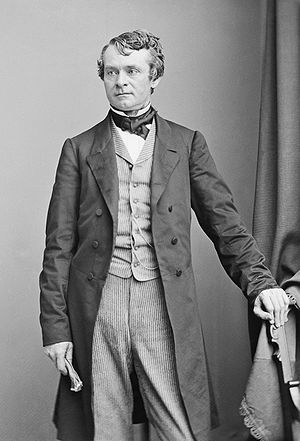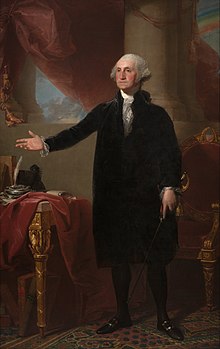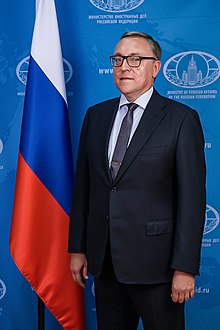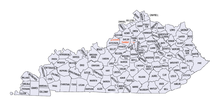| Main | Topics and categories | Tasks and projects |
The Politics portal
Politics (from Ancient Greek πολιτικά (politiká) 'affairs of the cities') is the set of activities that are associated with making decisions in groups, or other forms of power relations among individuals, such as the distribution of resources or status. The branch of social science that studies politics and government is referred to as political science.
It may be used positively in the context of a "political solution" which is compromising and non-violent, or descriptively as "the art or science of government", but also often carries a negative connotation. The concept has been defined in various ways, and different approaches have fundamentally differing views on whether it should be used extensively or in a limited way, empirically or normatively, and on whether conflict or co-operation is more essential to it.
A variety of methods are deployed in politics, which include promoting one's own political views among people, negotiation with other political subjects, making laws, and exercising internal and external force, including warfare against adversaries. Politics is exercised on a wide range of social levels, from clans and tribes of traditional societies, through modern local governments, companies and institutions up to sovereign states, to the international level.
In modern nation states, people often form political parties to represent their ideas. Members of a party often agree to take the same position on many issues and agree to support the same changes to law and the same leaders. An election is usually a competition between different parties.
A political system is a framework which defines acceptable political methods within a society. The history of political thought can be traced back to early antiquity, with seminal works such as Plato's Republic, Aristotle's Politics, Confucius's political manuscripts and Chanakya's Arthashastra. (Full article...)
Selected article
The Referendum Party was a Eurosceptic, single-issue political party that was active in the United Kingdom from 1994 to 1997. The party's sole objective was for a referendum to be held on the nature of the UK's membership of the European Union (EU). Specifically, it called for a referendum on whether the British electorate wanted to be part of a federal European state or to revert to being a sovereign nation that was part of a European free-trade bloc without wider political functions.
Featured picture

Andrew Gregg Curtin (1817–1894) was a U.S. lawyer and politician. He served as the 15th Governor of Pennsylvania during the American Civil War. During the Civil War, Curtin organized the Pennsylvania reserves into combat units, and oversaw the construction of the first Union military camp for training militia. After the Battle of Gettysburg, Governor Curtin was the principal force behind the establishment of the National Cemetery there. After serving two terms as governor, Curtin was appointed ambassador to Russia by Ulysses S. Grant, and he later served in the House of Representatives from 1881 until 1887.
Selected quote
Selected biography
Ban Ki-moon (born 13 June 1944) is a South Korean diplomat and the former Secretary-General of the United Nations. Before becoming Secretary-General, Ban was a career diplomat in South Korea's Ministry of Foreign Affairs and in the United Nations. He entered diplomatic service the year he graduated college, accepting his first post in New Delhi. In the foreign ministry he established a reputation for modesty and competence. Ban was the Foreign Minister of the Republic of Korea from January 2004 to November 2006. In February 2006 he began to campaign for the office of Secretary-General. Ban was initially considered to be a long shot for the office. As Foreign Minister of South Korea, however, he was able to travel to all of the countries that were members of the United Nations Security Council, a manoeuvre that turned him into the campaign's front runner. On 13 October 2006, he was elected to be the eighth Secretary-General by the United Nations General Assembly. On 1 January 2007, he succeeded Kofi Annan, and passed several major reforms regarding peacekeeping and UN employment practices. Diplomatically, Ban has taken particularly strong views on global warming, pressing the issue repeatedly with United States President George W. Bush, as well as Darfur, where he helped persuade Sudanese President Omar al-Bashir to allow peacekeeping troops to enter Sudan.
Did you know (auto-generated) -

- ... that Patricia Grace did not intend for her novel Potiki, about the impact of land development on an indigenous community, to be seen as political?
- ... that politics in The Simpsons have caused controversy in Argentina, Australia, Brazil, and Japan?
- ... that before entering politics, Romina Pérez worked at the Center for Legal Studies and Social Research, which "became a 'nursery' for intellectual and political cadres of the Movement for Socialism"?
- ... that Kaczyzm is a pejorative term describing the political ideology of Polish politicians Lech and Jarosław Kaczyński and their Law and Justice party?
- ... that the First Lady Bake-Off was inspired by a political gaffe by Hillary Clinton and predicted five out of seven elections?
- ... that Dave Barrow quit municipal politics to work at his family's insurance brokerage before becoming mayor of Richmond Hill?
More did you know...
- ...that the first phase of Mitt Romney's 2012 U.S. presidential campaign was announced via a video message?
- ...that the Zimbabwe Human Rights NGO Forum recorded over 1,200 violations of human rights in Zimbabwe by the law enforcement agencies from 2001 to September 2006?
- ...that the ideology of the Romanian National Renaissance Front has been described as "operetta fascism"?
- ...that in the 1984 Brown v. Hotel and Restaurant Employees case, the U.S. Supreme Court upheld a New Jersey gaming law requiring union leaders to be of good moral character?
- ...that the Brown Dog affair, an Edwardian era vivisection controversy, led to massive riots?
- ...that tiao-kuai is the quasi-federal administration system in China?
In this month
- July 20, 1944 – an assassination attempt is made on Adolf Hitler with involvement by notable German conservatives.
- July 23, 1952 – The European Coal and Steel Community is established.
- July 27, 1830 – King Charles X of France is overthrown in the French Revolution of 1830, also known as the July Revolution.
- July 31, 1912 – American conservative economist, statistician, and Nobel Prize winner Milton Friedman is born.
News and Current events
- August 11: 4 local government areas in New South Wales, Australia locked down after COVID-19 case
- August 11: Australia: AstraZeneca vaccine access expanded by Victorian government
- August 1: Australia: Victorian lockdown lifted
- July 29: Tunisia's president dismisses prime minister, suspends parliament
- July 25: Australia: Wikinews interviews Reg Kidd, mayor of the City of Orange, about COVID-19 lockdown and local government
- July 23: South Australia enters week-long lockdown to contain COVID-19 Delta variant spread
- July 21: Technological University Dublin senior lecturer Dr Lorcan Sirr speaks to Wikinews on housing market in Ireland
- July 21: Three rural councils in New South Wales, Australia enter 7-day lockdown
- July 21: Australia: Victoria lockdown extended by a week with 85 active cases recorded
- July 15: California governor signs new state budget, eligible Californians to get stimulus payments
Topics and categories
General images
Related portals
Associated Wikimedia
The following Wikimedia Foundation sister projects provide more on this subject:
-
Commons
Free media repository -
Wikibooks
Free textbooks and manuals -
Wikidata
Free knowledge base -
Wikinews
Free-content news -
Wikiquote
Collection of quotations -
Wikisource
Free-content library -
Wikiversity
Free learning tools -
Wiktionary
Dictionary and thesaurus

























































